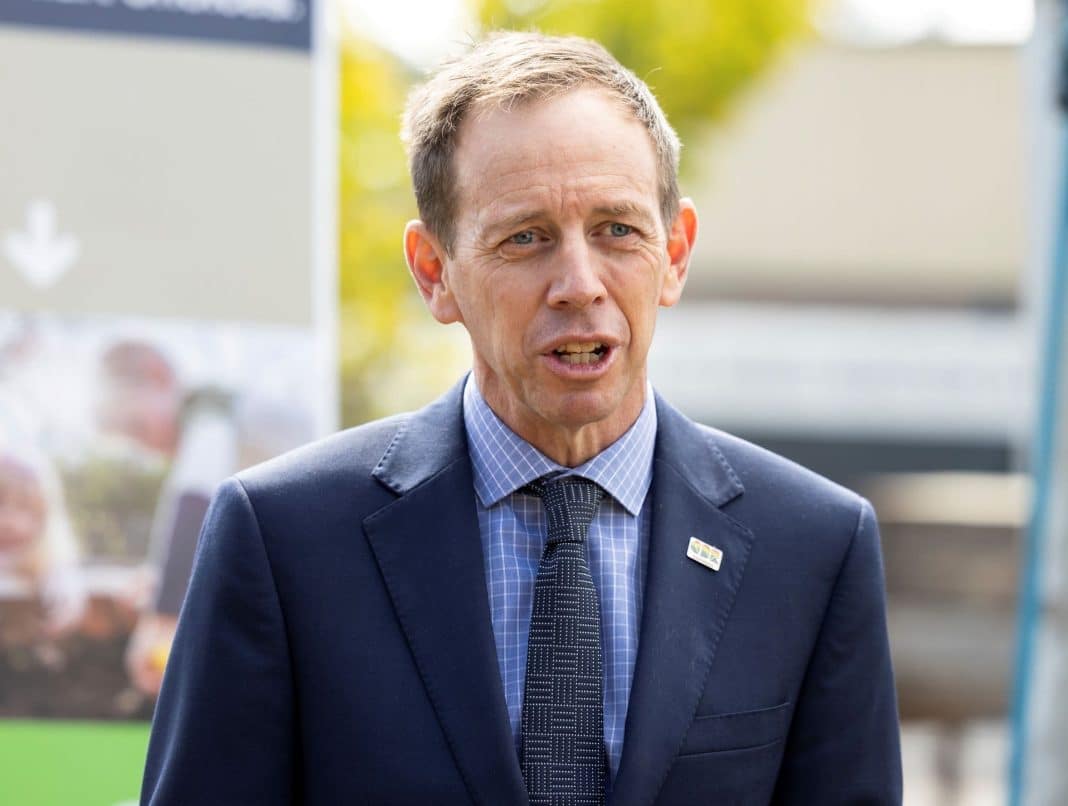The ACT Government – partly in response to calls for an independent review of sentencing and the judiciary – has set up a council to advise on law reform and sentencing.
Attorney-General Shane Rattenbury announced the Law and Sentencing Advisory Council the same morning bereaved father Tom McLuckie presented his three petitions to Liberal MLA Jeremy Hanson. The Liberals will move a no-confidence motion against Mr Rattenbury on Tuesday if he has not agreed to the review.
Mr McLuckie, Mr Hanson, and the Australian Federal Police Association welcomed the Council as a first step, but repeated their calls for an external review.
- Liberals threaten no confidence motion in Attorney-General (28 September)
- AFPA wants Shane Rattenbury to resign as Attorney-General (17 September)
- Reform of bail and sentencing in ACT needed, AFPA says (25 August)
- Tom McLuckie campaigns to ensure son Matthew didn’t die in vain (13 July)
The Council, Mr Rattenbury said, would be “an avenue for independent feedback to government on important matters of law reform and sentencing”. It would help the ACT Government keep laws current and relevant, and advise on sentencing, possibly collecting, analysing, and publishing data on sentencing trends and practices.
The ACT is the only jurisdiction in Australia without a law reform council; a previous council was disbanded three years ago. But Mr Rattenbury believed it should be reinstated.
“It is important to have these bodies to be a place where complex or uncertain legal matters can go for a good discussion, a good airing, some research, and a range of community perspectives be fed into government,” the Attorney-General said.
Given recent community interest in sentencing, Mr Rattenbury said, the council will be expanded to include sentencing issues.
Although he believes that “there is always room for improvement in the law”, he does not believe, however, that a wholesale review is necessary. Instead, the council will be “a lasting mechanism” to consider sentencing issues as they arise, and to ventilate community concerns.
Mr Rattenbury intends the Council will start running soon. Nominations will open in the next couple of months for a dozen people to sit on the panel. Members could include representatives from ACT Policing, ACT Courts, the ACT Bar Association, the ACT Law Society, the legal assistance sector, Aboriginal and Torres Strait Islanders, academia, and victims of crime and their families.
Mr McLuckie said he did not intend to nominate himself for the panel.
The Council’s briefs will come from the Attorney-General, driven by community input and matters raised in the ACT Legislative Assembly, Mr Rattenbury said. He expects there will be direct changes to the law from the Council.
The ACT has asked other jurisdictions for their advice on setting up the Council: what works well, and what pitfalls to avoid. The ACT might partner with other jurisdictions to benefit from their research.
The council will be reviewed in two or three years.
Mr Hanson said the council was an acknowledgement – for the first time – that the system was broken.
“There are great injustices happening when it comes to sentencing and bail,” the Shadow Minister for Police said. “We see too many perpetrators out on bail and committing other violent offences. It is a good step, but it’s not going to fix the problem. We still need that independent review of sentencing and bail to fix what is a broken system.”
Alex Caruana, president of the Australian Federal Police Association, had concerns about establishing a Law and Sentencing Committee by ‘pen-stroke’. He would prefer the committee to be legislative, and a bill created and tabled that would allow the Standing Committee on Justice and Community Safety to scrutinise the bill and process.
“By not legislating it, the committee can be removed by the stroke of a pen at the discretion of the Attorney-General. Legislating it would ensure independence and allow the Standing Committee on Justice and Community Safety to be involved.”
Mr Caruana said that while the AFPA supports the Law and Sentencing Committee in principle, some questions need answering, such as how the ACT Government would ensure the committee was independent; who the committee would report to; and whether any recommendations would be made public.
“Will they be buried in the office of the Attorney-General, or will they be made public? We don’t know,” Mr Caruana said.
Get local, national and world news, plus sport, entertainment, lifestyle, competitions and more delivered straight to your inbox with the Canberra Daily Daily Newsletter. Sign up here.



